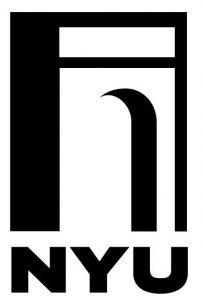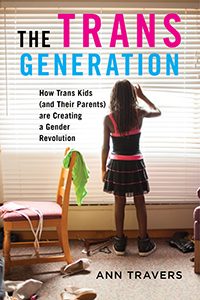How NYU Press used strategic timing, leveraged comp titles, and engaged with NetGalley members to make The Trans Generation a success
On NetGalley Insights, we highlight the successes of NetGalley publishers and authors, and share some of their strategies. Today, we’re talking with Betsy Steve, publicity manager at NYU Press about how she used NetGalley to ensure that The Trans Generation: How Trans Kids (and Their Parents) are Creating a Gender Revolution got the enthusiastic launch it deserved.
Published on June 5, 2018, The Trans Generation uses interviews with trans children and their parents to explore gender in the 21st century, and the experiences of navigating schools, healthcare, and society as a trans youth. Written by trans activist and advocate, Ann Travers, The Trans Generation is designed for both academic and popular audiences.
Our audience is always eager to learn more about how others are planning their publicity and marketing efforts on NetGalley. Where did NetGalley fit into the overall strategy and timeline for The Trans Generation?
 At NYU Press, we find that NetGalley exposure plays an extremely important role in elevating the titles that we believe have potential for a more general readership. These are also titles that we want on librarians’ and booksellers’ radar as soon as possible. We pay close attention to early feedback from users as it helps us position our books in the marketplace.
At NYU Press, we find that NetGalley exposure plays an extremely important role in elevating the titles that we believe have potential for a more general readership. These are also titles that we want on librarians’ and booksellers’ radar as soon as possible. We pay close attention to early feedback from users as it helps us position our books in the marketplace.
We knew in the early stages of planning for The Trans Generation that NetGalley would play pivotal role in its success. Last year, we had a separate book dealing with issues affecting the transgender community that was hugely popular with NetGalley readers, so we knew that there was a strong interest in the topic. As soon as we were ready to make ARCs, which for us is about 4-5 months ahead of publication, we posted the materials to NetGalley. We were able to use the widget in our ARC follow up and also email reviewers that we work with who primarily use digital galleys. The book’s publication month was during Pride month, so we also wanted to do a push with readers during that time.
Tell us a little about the various communities you focused on to promote The Trans Generation.
Outside of the academic community, we definitely wanted parents and caregivers of trans or gender fluid children to be made aware of Ann’s work. The book also has important information that can help teachers, social workers, community organizers, LGBTQ activists, even lawyers and medical providers.
With so much interest from a wide variety of readers, how did you use NetGalley to access these different readers?
Our previous success with Beyond Trans by Heath Fogg Davis helped inform who in the NetGalley community might be interested in The Trans Generation, so we targeted those same users. We were thrilled by the response from parents, many of whom I think were drawn to our book because of the title and cover. We also made mention of the author’s deep involvement with the trans community in our marketing copy to highlight that they are more than just an academic researching this area. Ann is deeply committed to the improving the lives of anyone who identifies as trans.
In what ways were these specific communities important to the success of the book?
Many of the reviews left on Goodreads, NetGalley, and Amazon were from parents or general readers interested in learning more about the trans community. It was fascinating to read that they learned so much from Ann’s work and that they would recommend the book to friends, their local libraries, and community outreach groups. We are thrilled that the book carries a 4.3-star rating on both Goodreads and Amazon, which we believe has helped in the book’s success.
What about the trade community on NetGalley? Were Reviewers, Librarians, Booksellers, Educators or book-trade media especially important to you? Why, and how did you go about reaching them?
The trade community is very important to us. Though we are an academic press, the titles we choose for NetGalley are accessibly-written on topics that appeal to a broad readership. We have cultivated an extensive list of auto-approved librarians and media that regularly check on our listings. We also notify users when we have a book they may be interested in because of their previous activity. When we see that a user posted a review to a blog or website, we make sure to tweet out the link.
How did you optimize your Title Details page to drive requests and reviews for your book?
For this, we made sure to add all the excellent advanced coverage the book received in the “Advance Praise” section. We find that endorsements from library pre-publications and other long lead media appeal more to general readers than praise from academics and scholars. We also added to the title page all the amazing reviews users submitted.
Which NetGalley marketing tools did you take advantage of? How and when did you use them to increase interest?
NetGalley offers some excellent marketing opportunities that I take advantage of whenever they fit with our titles. For The Trans Generation, we nominated it to appear in the “Featured on NetGalley” promotion that coincided with “GLBT Book Month,” which was a perfect and timely tie in. We definitely saw an uptick of requests once that ran.
How did you engage with members who requested access? How did this fit into your overall timeline for marketing and/or publicity?
We create a personalized approval email for each title that encourages members to leave reviews on sites such as Goodreads, Amazon, B&N.com and their independent bookstores’ website. We rely on their positive feedback on these platforms to boost our titles’ visibility. For The Trans Generation, we did a promo push to celebrate both pub and Pride month with all members who requested access. This was a follow up email that encouraged members, if they hadn’t already, to please leave a review of the book as a way to celebrate Pride. We did see an increase in engagement after we sent that campaign.
How has NetGalley been incorporated into your post-pub strategy?
For our more popular titles, like The Trans Generation, we often leave them up for a few months after pub. We definitely want to leave enough time for users to leave reviews with Amazon. National and local review coverage plus radio interviews often provoke members to look up a book and it’s important to us that everyone who is interested in our titles have an opportunity to download them. We also will use the widget in course adoption campaigns that may go out after the pub date.
What are your top tips for academic publishers and nonfiction publishers listing titles on NetGalley?
- For academic publishers, try to post titles that are accessibly-written and would appeal to a general reader. This definitely helps with relationship building.
- Take advantage of the NetGalley marketing programs. They do an excellent job making readers aware of books they might be interested in. It’s a great way to boost your visibility on the platform and gain some new readers.
- NetGalley is a process. The more you take the time to engage with users, the stronger your following becomes.

Betsy Steve is the Publicity Manager at NYU Press.


One thought on “Case Study: The Trans Generation by Ann Travers”